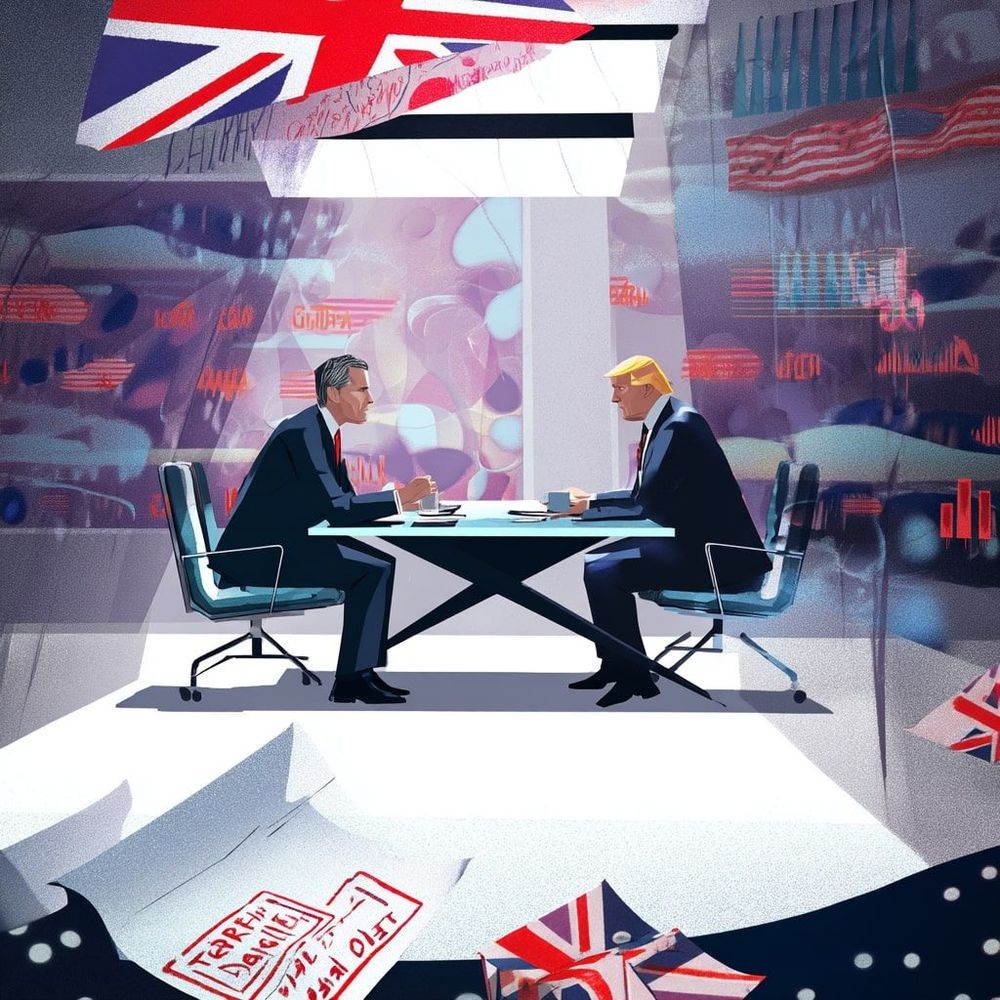UK & US in Trade Talks: Will Tax Breaks for Tech Giants Cost the UK’s Sovereignty?
🇬🇧 UK & 🇺🇸 Trade Talks: Lower Tariffs, But What’s the Catch?
UK Prime Minister Keir Starmer is in high-stakes negotiations with Donald Trump to reduce the 10% tariffs that are currently hitting UK exports to the US. The goal? Strike a deal that would help UK businesses by lowering tariffs, easing pressure on British exporters, and bringing down consumer prices. But here's the catch: the UK might have to make some serious concessions—specifically, on tax breaks for US tech giants.
What’s the UK Offering? 🤔
- Tariff Cuts on US Goods: Starmer's government is looking to offer lower tariffs on imports of US beef and fish.
- Tax Cuts for US Tech: In return, they’re considering giving tax breaks to major US tech companies like Google, Amazon, and Apple.
- Business Leaders Are Onboard: Many business leaders are all for the idea, believing that it will boost trade and make life easier for exporters.
But, There's a Catch... Tech Regulation ⚖️
Here's where it gets tricky. Some critics argue that these tax breaks for US tech firms could weaken the UK’s control over its own tech regulations. The concern? It might affect data privacy laws, AI governance, and other digital economy policies that are crucial for the UK's future.
The Balancing Act: Trade Benefits vs. Tech Sovereignty ⚖️💼
Starmer’s government has to strike a fine balance here—how do you negotiate a good trade deal without risking the UK’s regulatory authority over its tech sector? The move could offer short-term relief to UK businesses, but at what cost in the long run? Could the UK give up too much control over its tech landscape?
Business leaders are pushing for a quick deal, but these negotiations could set a dangerous precedent if they compromise too much. So, what’s next? The situation’s still evolving, and it’s far from a done deal.
TL;DR: The UK wants to lower tariffs with the US to help exporters, but they might have to give tech companies tax breaks. The trade-off? Potential loss of control over UK tech regulations in the long run.

Recent News
All Time High • Live
Have questions or want to collaborate? Reach us at: [email protected]










